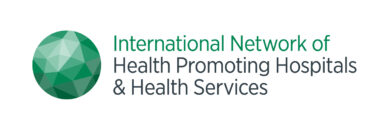Ensuring equal access to and quality of health services for refugees and migrants
Abstract summary:
Preconference Target Group: This workshop will target primarily hospital/ health care managers, health professionals and researchers.
Preconference Organisers: Representatives of the HPH Task Force Migrant-friendly Hospitals and Health Services
Presentation of the HPH-TF MFH: The Task Force on MFH is established within the International Network of Health Promoting Hospitals & Health Services (HPH) and its general aim is to support member organisations in developing policies, systems and competences for the provision and delivery of accessible health care to patients from diverse communities. From the very outset, the TF MFH struck up a strong alliance with the world of research dedicated to the study of health care for migrants, culminating in the TF participating in various EU projects. In particular, during the last four years the TF MFH has worked on a project aimed at developing a comprehensive framework for measuring and monitoring the capacity of healthcare organisations to improve accessibility and quality of care for migrants and other vulnerable groups. To this end a set of standards for equity in health care were developed with international input, aiming at attaining equity in health care for migrants and other vulnerable groups. The standards for equity in health care address 5 domains: (1) Equity in policy, (2) Equitable access and utilisation, (3) Equitable quality of care, (4) Equity in participation and (5) Promoting equity. The standards for equity provide opportunity for staff and services to question what they do, why they do it, and whether it can be done better.
Introduction: For migrants, barriers to accessing healthcare represent a complex picture. It has long been recognised that newly arriving migrants may face special health risks and frequently do not receive the care they need. There are also important access problems faced by people living in temporary reception centres and by irregular migrants, refugees and undocumented persons in general. Moreover, there are many challenges for providing healthcare to these vulnerable groups. A recent study conducted by the HPH-TF MFH within the EU funded project “Supporting health coordination, assessments, planning, access to health care and capacity building in Member States under particular migratory pressure” (SH-CAPAC) has identified the following challenges for health professionals and asylum seekers in the access of health services: legislative, administrative and bureaucratic barriers; linguistic and sociocultural barriers; organisational barriers and difficulties to ensure equitable quality of care; lack of coordination between services; limited information for health providers and difficulties to ensure continuity of care; limited information and education for refugees and asylum seekers. Furthermore, four additional categories of barriers concerning specific areas of health care have been identified: mental health care, sexual and reproductive care, children and adolescents care and victims of violence care.
Preconference aim and themes: The aim of this preconference is to present and discuss the results of research and practice relating to refugee and migrant access to health care. The preconference themes would explore the state of the art on migrant access to health-care services according to the standards for equity, and they would be structured as follow:
- EQUITY POLICY MEASURES FOR REFUGEES AND ASYLUM SEEKERS IN EUROPE;
- LANGUAGE AND SOCIO-CULTURAL BARRIERS IN HEALTH CARE;
- EQUITABLE ACCESS AND UTILISATION OF HEALTH SERVICES;
- MIGRANT PATIENT INFORMATION AND CONTINUITY OF CARE;
- INDIVIDUAL AND ORGANISATIONAL CULTURAL COLLABORATION AND DIFFERENCE INCLUSION;
- SERVICE COORDINATION AND STRATEGIC PARTNERSHIPS.
Furthermore specific attention will be given to: i) the results of the international assessment of migrant integration policies (Mipex); ii) accessibility to health care services; iii) quality of care and iv) strategies to address barriers and to implement effective solutions. The preconference will conclude with the illustration of future steps and activities of the HPH-Task Force on MFH.
Contacts:
Antonio Chiarenza, Leader of the TF MFH HPH, Regional HPH Network of Emilia-Romagna, Italy, antonio.chiarenza(at)ausl.re(punkt)it


